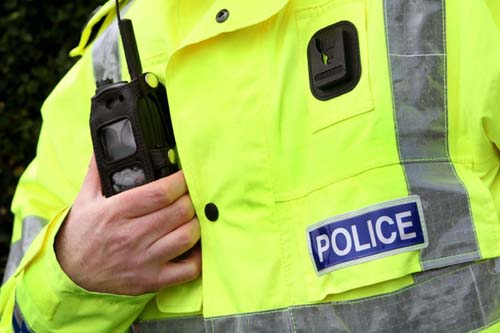MORE THAN half of Scots police officers say they have been injured by their own uniform, a shocking survey has revealed.
Back pain, hip injuries, rashes, sciatica and stomach pains have all been caused by what they claim are ill-fitting uniforms.
Officers also said that body armour lead to “excessive sweating” and skin rashes.
The revelations follow weeks of bad publicity for Police Scotland who have been criticised for routinely carrying guns, spending almost £100,000 in the last year on trips abroad and for the treatment of officers during the Commonwealth Games.
Six out of ten respondents to the study, that was carried out by University of Dundee, said they had suffered “pain or injury” as a result of their uniform.
28% said that their uniform had made existing injuries worse or had delayed their recuperation, while more than half said that they felt their uniform hindered their ability to do their jobs properly.
According to the survey officers said that ill-fitting stab-proof vests, body armour, utility belt and shoulder harnesses were to blame for the injuries suffered while working.
Officers also complained that their movement is restricted by the clothing making it harder to run, restrain and apprehend suspects, while driving and trying to quickly get out of vehicles was also difficult.
The survey noted that officers said that their radios and personal protective equipment often got caught on seat belts, doors, fences and furniture.
A number of officers said that “poor uniform” often led to them being “unhappy” as well as cold, wet, sweaty and fatigued.
The report, which was initially carried out on the behalf of Tayside Police before the creation of Police Scotland last year, recommended that the force should look into “gender-specific” summer and winter uniforms.
This is due to women being more susceptible to monthly body temperature changes as well as symptoms of the menopause.
The report said: “Many officers appear genuinely concerned about long term health issues through wearing the current uniform. Many described personal hygiene as being very important to them and the service provided. Some officers suggest that a quality designed uniform may actually assist with personal hygiene, reduce absence rates and in real terms save money.”
It added: “It is clear from the general response to this survey that officers feel passionate and are concerned about their uniform. They want to look professional and also maintain a sensible degree of protection from both suspects and the prevailing weather conditions.”
Ch Insp Fay Tennet, Vice President of the British Association for Women in Policing, said: “Police officers, whatever their gender, need to have the kit and equipment and uniform that enables them to do their job.
“Having things that do not fit or do not work or even make people feel excluded is not acceptable. If you are given a kit and are told – “look this isn’t made for you but you can wear it”, it makes you feel like you don’t belong. People can feel excluded.”
Scottish Conservative chief whip John Lamont said: “The personal comfort of officers must obviously be weighed against the need to be adequately equipped.
“If officers feel current uniforms are hindering their recovery, comfort and ability to carry out their duties this obviously needs to be looked into.
“If improvements can be made that are not too costly, then perhaps that offers a potential way forward.”
There has been a long history of officers in Scotland moaning about their uniform.
In 2011 the former Fife division of was criticised after it issued a 24-page document, which included a whole chapter on “sunglass etiquette” and banned officers from wearing mirrored sunglasses.
In 2009, officers also complained that the glue on their body armour “stinks to high heaven.”
One officer on forum policespecials.com even said “I swear I repulse myself when I wear it.”

